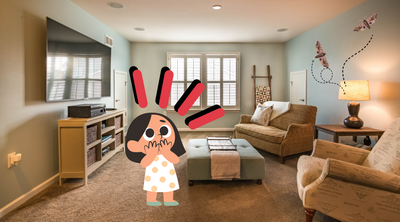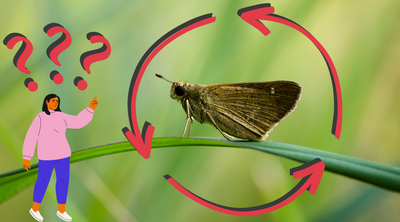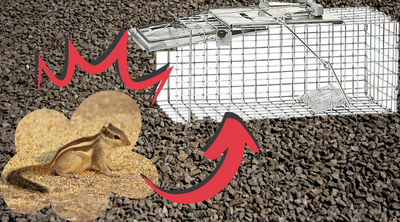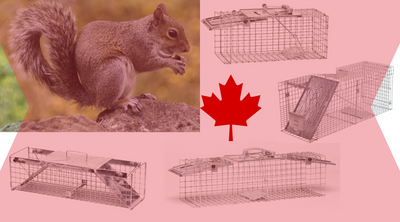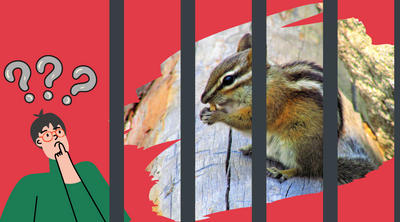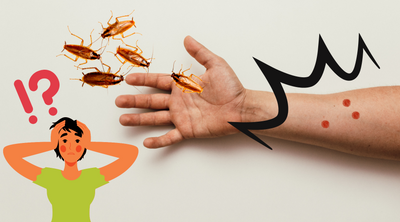Most species of spiders create webs and this can help you determine if critters are present in your property. Spiders are usually found in dark, isolated areas. The shape and size of webs differ by species. You may see funnel-shaped or orb-shaped webs.
Some species live in crevices, while others hide in burrows instead of building webs. Since some spiders prefer moist environments, you should check your sheds, basements, and walls. Others can be found in closets, attics and other storage areas.
Spiders Will Flock Where there’s Food
Spiders will move to areas that can provide enough food. They are looking for a place that has pests. Spiders need a healthy population of insects to survive. They have to feed regularly and if there’s not enough supply of food, they’ll either relocate or die.
Handling Different Spider Species
When handling a spider infestation, you must know that you shouldn’t simply remove spider webs to get rid of them. You should know how to react or handle different species and not just ruin their living spaces.

Common House Spider
Spiders enter buildings as either web makers or ground dwellers. Spiders that thrive on the ground are typically much stronger than web makers.
Ground dwellers are great hunters and are usually nocturnal, aggressive and depend on their strong bite and grip. Some ground dwellers have toxins, but they usually don’t need it. They stalk their prey within a pouncing distance and then attack it.
Web makers are usually slower, weaker, and more fragile than ground dwellers. They’re not as well equipped as ground dwellers to protect themselves.
Their venom makes up for their lack of physical strength. Web makers usually have toxins that can quickly kill insects. In some cases, the toxins are very strong it can be lethal to humans.
Brown Recluse Spider and Black Widow Spider
Don’t handle brown recluse spiders and black widow spider on your own. Brown recluse spiders have necrotic venom. In severe cases, the bite could lead to necrosis. Most people don’t experience symptoms. Only a few experienced stinging pain.
Yellow Sac Spiders
The yellow sac spider is a poisonous spider. Sac spiders are usually pale. The bite of a yellow sac spider can hurt. The victim may experience swelling, burning, and redness on the bite site.
If you experience headache, nausea, vomiting, or other kinds of severe symptoms, you should seek prompt medical attention. Eliminate the silk sacs of these spiders using a vacuum cleaner. If the issue gets out of hand, you can hire a pest control company to help you.
How to Get Rid of Spiders
- If you want to eliminate spiders in your home, you should get rid of clutter in areas that may attract spiders such as storage boxes, under-bed storage, and piles of old magazines and newspapers.
- You should also clean often. Don’t just dust horizontal surfaces or run the vacuum cleaner through the center of your room. This is not enough to prevent spiders from invading your home.
- Spiders love building webs, so you shouldn’t allow them to do that. Vacuum beneath and behind nightstands, sofas, and chairs. A dusting pole vacuum accessory can be used to clean corners, ceilings, and light fixtures.
- Prevent spiders from entering your home. Inspect the walls and foundations of your home. Seal any cracks, gaps, and crevices. Avoid stacking firewood along the foundation of your house.
- Mow or trim grass regularly to prevent them from touching your home’s exterior walls. Close the chimney flue when you’re not using the fireplace. Doing so will deter spiders and help reduce your utility bills as well.
- Pests such as spiders often enter homes through paper grocery bags. Consider using cloth grocery bags and washing them regularly.
- Natural deterrents may also help. Put spider glue traps in spots where spiders are often seen such as under utility sinks. Spiders hate the smell of vinegar and peppermint oil. Spray entryways and windowsills with a solution of 1 1/2 cups of water, 10 drops of peppermint essential oil and 1/2 cup of white vinegar.
Treating an Active Spider Infestation
Spider treatments usually focus on where these critters are seen. However, it is best to get the spiders where they come from. All spiders come from outside your house. Ongoing spider problems in living spaces are likely to originate from crawlspaces, attics, or turf.
You should treat where the spiders are coming from to get rid of them for good. The species of spider usually determine the best treatment option. Web makers live inside your house, so you may want to focus on your home’s structure. Ground dwellers cover wide areas of grass, so doing yard treatments might be more productive.
How to Treat Spiders Outdoors
Spiders outdoors will eventually enter your home. If you allow them to access your yard, it won’t be long before they get inside your home.
Prevent spiders from gaining entry to your home by focusing your treatment where it really matters. For some, spraying the foundation with residual insecticide is enough to deal with the problem. Others use yard granules. Once you’ve properly treated the outside source, you will not have new spider activity inside your home.
If you are dealing with ground spiders such as wolf spiders, you should treat the turf as well. Treat as much as of your yard as possible. Ground spiders can cover a wide area on any given night.
Letting them roam actively in the backyard will allow them to access entry points such as the garage. When this happens, you will have an active spider infestation in your home.
Keeping outdoor lights off might also help. Insects are attracted to lights and spiders are attracted to insects. Consider scattering Diatomaceous Earth (DE) around your house. Spread a fine layer of Diatomaceous Earth around the corners and cracks of your home. The powder cuts up spiders when they walk across it.
The fruits of Osage orange trees, chestnuts, and walnuts are said to discourage spiders. You can scatter horse chestnuts in every corner of your home or in spots where you often see spiders.
When to Call Experts
Call a pest control company if needed. Bad infestations like those found in an older house may need the expertise of a professional exterminator. Many pest control companies provide non-toxic solutions. You can use the tips mentioned above to prevent future infestations.



